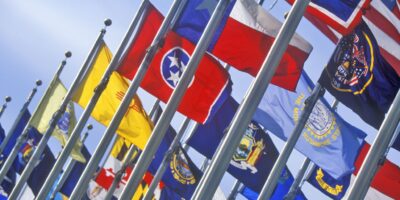When Your Intellectual Heroes Let You Down

The lockdown upheaval has affected every aspect of life, including intellectual life. People we have never heard of have become some of the most passionate and informative voices against government measures. I’m glad to meet them and interested in seeing how they grow through this to become influential voices.
People who otherwise would never have entered public life on this topic felt a moral conviction to stand up and speak. Martin Kulldorff and Lord Sumption come to mind – serious men who could easily have sat this one out – along with tremendous forces of truth such as Alex Berenson, Toby Young, Peter Hitchens, and Stacey Rudin, in addition to the many writers for AIER (too many to list) who have been just brilliant from the beginning of this crisis.
Some prominent voices have shown themselves willing to rethink in real time. Matt Ridley, after an initial bout of alarmism, gradually came around. It was he who took model-builder Neil Ferguson to task in the House of Lords, showing that his numbers do not add up. It was a satisfying exchange.
At the same time, these days have apparently been disorienting for a number of intellectuals I’ve followed for years. Some are silent either out of fear or confusion, and others have faltered. They have allowed panic to overcome rationality, been overly glued to the television screen, demonstrated overreliance on some “experts” while lacking curiosity to look further, and otherwise downplayed the carnage that has come from lockdowns.
Some of these people – many good libertarians in normal times, from whom I’ve learned a ton through the years – have found themselves thoroughly confused about what government should and should not do in times of pandemic. In truth, it’s always been a confusing topic for some.
Years ago, I was in a public debate with my friend Mark Skousen. He took the position that we need a strong but limited state while I argued for a model of pure freedom. His main point concerned pandemics. He said that the state must have the quarantine power, while I said this power would be used unwisely and ultimately abused. (By vote, I lost the debate.)
Dr. Skousen wrote me early on in this crisis with one message: “You were right and I was wrong.” Very kind! It’s impressive for anyone to admit something like that. It’s a rare thing among scholars. Too many are beset with an infallibility complex even on subjects about which they know very little.
So, yes, the virus has exposed weak links in even brilliant minds. Yes, this can be disappointing. I could list examples, and I’m sure you can too, but I will refrain from personalizing the point. Suffice it to say that there have been many disappointments these days, such as people who feel the need to say: “I’m against lockdowns but….”
Whether the failure to step up stems from a basic confusion over immunology, a naive trust in government, or just the way some people do not want to risk well-earned reputations by taking unpopular positions, it is still an unhappy situation when our heroes stumble and falter when we need them the most.
The same could be said of organizations and venues. I will only cite one case in point: National Review. You might think conservatives would be skeptical of technocratic and scientistic novel experiments in totalitarian disease planning. Oddly, from the beginning of this crisis, the publication has been mostly quiet on the topic, with some exceptions.
Only yesterday did I find out the reason. The editor, Rich Lowry, leaned in early to support the lockdowns and condemn those who favor, for example, following the Constitution. Once people like this take a position, they have a hard time backing off from it. His bias seems to have affected the editorial position of what was once a leading voice for liberty and the rule of law.
Perhaps, however, we expect too much from our intellectual allegiances and heroes. It’s true, from my point of view, that if you cannot flat out say that a virus is no excuse for violating human rights, that travel restrictions and house arrest are immoral, that mandatory closures of bars and churches constitute an appalling imposition on property rights, that prohibiting contracts between consenting adults is wrong, I cannot muster a high regard for your intellectual integrity. I’m sorry, but a widespread and contagious virus cannot be suppressed by the police state; failing to understand that strikes me as the height of folly.
That said, there is a long tradition of intellectuals being 100% great on some issues, and flipping to contradict themselves under conditions that test their own consistency. A good example might be, for example, Aristotle himself, who was a pillar of realism and rationality but seemed never to figure out basic economic concepts and then couldn’t find his way to figuring out that slavery was wrong. Or St. Thomas Aquinas, who said government should stick only to punishing theft and murder but then offhandedly defended the burning of heretics.
That Aristotle and Aquinas were brilliant on some issues and terrible on others does not mean we cannot learn from them. It just means that they are fallible humans. In intellectual life, the goal is not to find saints to worship or witches to burn but to seek and discover what is true from any source. Great minds can and do go astray.
Among my own heroes I would list F.A. Hayek, whose insights on knowledge in society have shaped how I see the world and this crisis in particular. My article Smart Society, Stupid People is an example of the results. A Hayekian understands that the state has no access to an intelligence that is higher than that which is embedded in economic institutions and social processes, which in turn emanates from the dispersed knowledge and experiences of people. It’s a general principle. And yet Hayek himself did not always apply his own teachings to his thinking, and thus did he variously stumble into a planning mindset himself.
What are we to do when faced with such contradictions? Mope around and kvetch about how Hayek has failed us? Ridiculous. The point is to extract the truth from all writings and let that inform our thinking, not merely download someone else’s brain to our own and imitate. This is true even of our heroes. We can still appreciate a person’s work even when he or she fails to follow through. We somehow need to get to the place where we can separate ideas from the person, knowing that when an intellectual writes he or she is giving ideas away to the world. The person is not the product; the ideas are the real thing.
The case against lockdowns is the obverse of the case for freedom itself. It seems unconscionable for any liberal mind to be wrong on this point. That so many have gone silent or even shown sympathy for lockdowns reveals just how tremendously confusing these times have been.
The idea that governments need total power in the event of a pandemic discombobulated many otherwise impressive thinkers and writers who seemed never to have considered the idea. At the same time, there is a new generation and these times have been a marvelous teacher about the ubiquity of policy failure. It is forging new libertarian minds by the day, and the lessons will not be forgotten.












